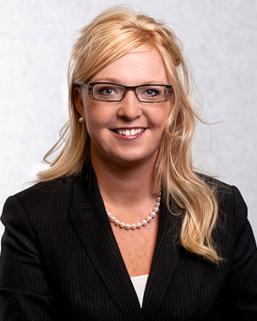Bargaining in the Broader Public Sector Conference
Conference Co-Chairs
Conference Advisory Committee
Steve Stringfellow
Strategic Negotiations Lead
Provincial Bargaining Coordination Office
Alberta Treasury Board and Finance
Tuesday, November 21, 2023
Breakfast and Registration 8:00 a.m. – 9:00 a.m.
Introductory remarks by Co-Chairs 9:00 a.m. – 9:10 a.m.
In this session, experts will examine the economic and fiscal forecast for Alberta and Canada in 2024, focusing on the implications for collective bargaining. Specifically, panelists will address:
- What short- and long-term economic and fiscal trends are experts predicting in 2024 in Alberta and in Canada? How does the outlook in Alberta compare to other provinces and the United States?
- How should parties address rising costs of living when negotiating wage increases? Beyond general wage increases, what wage adjustment mechanisms may be employed? Are longer-term wage adjustments such as periodic cost of living adjustments likely to gain traction?
- How does the current status of the Alberta labour market compare with the federal labour market? Were more jobs gained or lost in 2023? What is the outlook for 2024?
- How can parties tackle staffing and retention challenges during negotiations? Based on the labour market outlook, is there greater pressure to increase wages, or make other concessions, to attract and retain workers?
- Will the recent increases in the federal minimum wage and the Alberta minimum wage affect bargaining, especially negotiations pertaining to lower-wage workers?
- What measures are governments currently likely to prioritize in provincial and federal budgets to ensure economic growth and prosperity? How will these measures affect bargaining?
Morning break 10:30 a.m. – 10:45 a.m.
In this session, experts will examine recent cases and legislative developments with implications for collective bargaining. Panelists will address the latest cases on government intervention in collective bargaining, cases illustrating key principles of collective agreement interpretation, noteworthy interest arbitration awards, and recent labour board decisions. Final selection of topics will take place in the weeks leading up to the conference, ensuring coverage of the latest and most newsworthy developments.
Lunch 12:00 p.m. – 1:00 p.m.
![]()
Kevin Davediuk
Chief Advisor on Negotiations
Provincial Bargaining Coordination Office
Government of Alberta
Crafting and presenting messages effectively, accurately, and lawfully is critical to successful negotiations. In this session, panelists will discuss strategies for employers and unions seeking to manage communications before, during, and after collective bargaining. Specifically, the panel will address:
- What key information should be communicated to employees or members during bargaining? How should these communications be framed?
- What types of communications with employees are permissible under the Alberta Labour Relations Code during bargaining and what types of practices may be in violation of the Code?
- How can employers and unions ensure that they get the information needed from each other and from employees in order to determine their bargaining positions?
- How can employers and unions communicate effectively with one another during bargaining? What are best practices in presenting proposals, responding to counterproposals, and bridging an impasse?
- What adjustments, if any, should bargaining teams make to prepare effectively for communicating proposals and negotiating in a virtual or hybrid environment?
- Has there been an increase in recent years in rejected tentative agreements? Are there communication practices that may help avoid this outcome?
- What limits exist, if any, on communications with the media during collective bargaining? How should employers and unions respond to unintentional information “leaks”?
- What are the advantages and disadvantages of social media during bargaining when organizing employees, assessing bargaining realities, and taking into account privacy and confidentiality concerns?
- How can parties manage misinformation in an increasingly digital world and evaluate the accuracy of information surrounding negotiations?
Afternoon Break 2:15 p.m. – 2:30 p.m.
In this session, expert panelists will provide guidance on addressing, through collective bargaining, rapidly progressing technology, increased monitoring and surveillance capabilities, and resulting privacy implications for the workplace. Panelists will address questions including:
- Are concerns about the impact of artificial intelligence (“AI”) on work overblown? Is this technological advance different from previous technological revolutions that raised concerns about mass unemployment and dehumanization of work? Which jobs and sectors are expected to be most affected?
- What key impacts resulting from the use of AI in workplaces should be addressed through collective bargaining? What lessons can be learned from language introduced to address past technological developments?
- Will human resources be taken over by “algorithmic management,” defined as delegating to algorithms certain managerial tasks such as filtering through applications for employment, assessing employee performance, or even making decisions regarding termination of employment? How should parties address the potential use of algorithmic management in collective agreements?
- How have arbitrators treated the use of emerging monitoring and surveillance technologies intended to measure employee productivity or performance, such as biometric scanning, wearables, GPS tracking, and keystroke monitoring software? What lessons can be learned from these decisions when negotiating collective agreement language?
- Do employers have a right to engage in off-duty surveillance of employees through digital or technological means? If so, can this right be limited through collective agreement language?
- Are employees entitled to information about how their employer is using AI and monitoring and surveillance technologies? How much say do unions and their members currently have in what employee information employers collect and how it is used? How can collective bargaining provisions address these issues?
Conference ends 3:45 p.m.
Wednesday, November 22, 2023
Workshop
*Workshop sold separately from stand-alone conference.
9:00 a.m. – 4:00 p.m.
Finding the common ground that makes negotiation of a collective agreement possible can be a difficult process at the best of times. However, when external factors such as funding cuts and government-imposed mandates seriously limit the options available to unions and employers, a normally difficult process can become nearly impossible. Is there a way to make the process easier, or to prevent parties from becoming so entrenched in their own positions and views such that agreement is impossible?
In this interactive full-day workshop, an experienced mediator along with two seasoned negotiators from both sides of the table will provide guidance on effectively using interest-based and other approaches to bargaining. Participants will learn to:
- Use more productive strategies when engaged in positional bargaining;
- Identify situations in which interest-based bargaining can be used effectively;
- Communicate effectively to identify needs and interests underlying demands;
- Generate creative options to solve tough problems; and
- Build and preserve productive union-management relationships through bargaining.
CPD

This program has been approved by CPHR Alberta for 5 Continuing Professional Development hours.
- This program has been approved by the Law Society of British Colombia for 5 Continuing Professional Development hours.
- This program has been approved by the Law Society of Saskatchewan for 5 Continuing Professional Development hours.

This program has been approved by CPHR Alberta for 5.25 Continuing Professional Development hours.
- This program has been approved by the Law Society of British Colombia for 5.25 Continuing Professional Development hours.
- This program has been approved by the Law Society of Saskatchewan for 5.25 Continuing Professional Development hours.

























